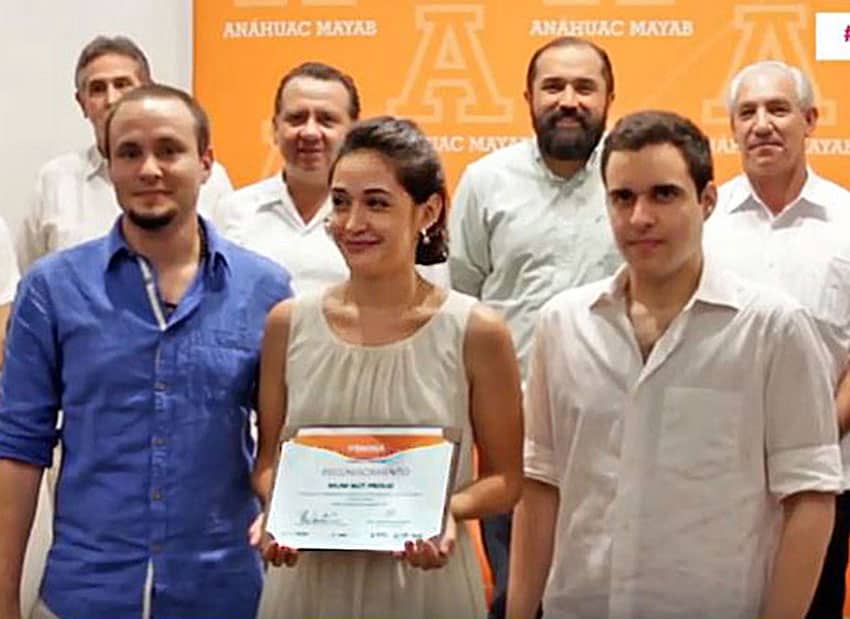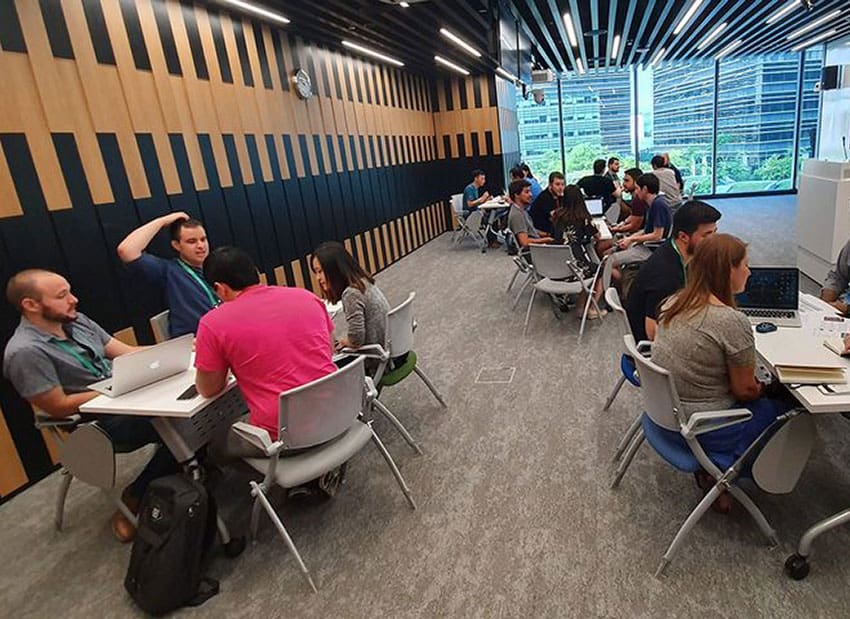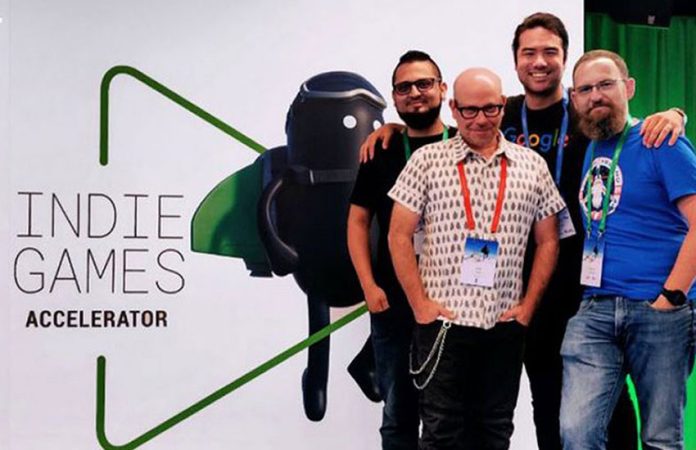Two video game studios from Mexico were among the beneficiaries of Google’s Indie Games Accelerator (IGA), a program for recognizing and assisting independent video game startups in emerging markets.
Selected developers are flown to Google’s Asia-Pacific office in Singapore to participate in two all-expenses-paid gaming bootcamps with some of the world’s best mentors in the field.
More than 1,700 developers from 37 countries in Asia, the Middle East, Africa and Latin America submitted their most promising video games to IGA and 30 of those developers were selected to go to Singapore, among them two studios in Guadalajara and Mérida.
The former is called 1 Simple Game and began producing video games in 2013. Perhaps its most famous game, Mucho Taco, became a worldwide hit with over two million downloads, and received Apple’s Best of App Store award.
I asked the director of 1 Simple Game, Ovidio Escobedo, for his comments on being selected to go to Singapore.

“This is the second year Google is doing this,” he told me. “They invite video game studios from around the world to participate in a training seminar aimed at developing our structure as a company, improving our business strategies and much more. So we signed up and submitted some of our published and nearly ready games and we were selected.
The seminar in Singapore took place on July 29 and lasted one week. Our mentors were experts from bigger companies who held full-day work sessions all week long and now we are being given follow-up assistance by those same Google mentors. Then we’ll go back to Singapore in December to see what kind of results come from all this.”
Most likely to benefit from Google’s assistance is 1 Simple Game’s latest creation, Chronoloop, which works on mobile devices. “As its name implies,” Escobedo told me, “Chronoloop is a time-travel strategy game. Players are able to go into the past and change it, improving their abilities in the future. They learn from their mistakes and get better with more and more successes.
“We’ve been working on this game for a year and a half. First of all, it’s very nice looking, but what caught Google’s eye was its complexity of design, its systems. For example, it has a combat system which includes an element of artificial intelligence. Because it’s attractive and complex, the promise of this game is that once someone has it installed, he or she will be playing the game for many months to come.
“By the way, we’ve just opened the door to people who would like to try a preliminary version of Chronoloop. All they have to do is send us an email and they’ll have a chance to play the game before it’s officially released.”
The other Mexican team chosen to attend Google’s “bootcamp,” located in Mérida, Yucatán, goes by the name of Mum Not Proud, a reference to the reaction of typical parents to their children’s pursuit of a career in video game design.

Working out of their grandma’s bedroom, Mum Not Proud produced a game called BAIKOH, which could be considered a fusion of Scrabble and Tetris — with complications. BAIKOH turned out to be so much fun and so challenging that it was selected as part of the editor’s choice in Google Play and was named Game of the Day three times on the App Store.
So it is no surprise that almost three million people have downloaded it so far.
Although it was not originally intended to be such, BAIKOH can be considered an educational game simply because the more the players improve their vocabulary and spelling, the better they score. Note that BAIKOH stands for Best Artificial Intelligence Killer of Humans. Players say the game is cool, addictive, mesmerizing, clever and delicious . . . “but BAIKOH hates you and lets you know it all the time.” You can download it from Google Play Store.
Mum Not Proud’s Patricio Bouza told me their entire studio consists of only three individuals, students of multimedia design at Anáhuac Mayab University.
“Because we wanted to do video games, we found we had to be self-taught, so each of us became specialized in a different path. You could say BAIKOH was our university and only after two years of experimenting did we feel we were ready to launch it. When we did so, we found it did relatively well.
“So along came IGA, and only a week before the deadline I asked my colleagues: ‘Do you want to try for this?’ They said yes, so we really had to scurry, filling out forms, but what gave us the most trouble was trying to arrange for a visa to pass through the U.S.A. We just couldn’t work it out, but we entered the competition anyway and about a week later, one Saturday morning, they passed me the telephone. ‘It’s Google and they want to talk to you.’
[soliloquy id="91034"]
“Well, my eyes popped because I thought, ‘There’s only one reason why they would be calling me.’ And, yes, they said we had been selected, and I shouted for sheer joy. You know, there aren’t that many people who do video games in Mexico and survive, so we felt it was a real honor for us three here in Yucatán to be representing our country at this international event.
“But we didn’t have those U.S. visas, so IGA moved heaven and earth to route us ‘the long way’ to Singapore, via Mexico City and Amsterdam — a 30-hour trip — but it was all worth it because we learned a lot: our mentors turned out to be people with decades of experience, real war veterans! And now, here in Mexico, we are passing on to our colleagues what we learned in Singapore.”
If you wish to try the games, don’t worry about a language barrier. The two studios are Mexican but their games are in English, the universal language for video games.
Thanks to Google’s reaching out to the young people working in these two Mexican video game studios, I think they have surely reached a point where they can say “Mum Now Proud.”
The writer has lived near Guadalajara, Jalisco, for more than 30 years and is the author of A Guide to West Mexico’s Guachimontones and Surrounding Area and co-author of Outdoors in Western Mexico. More of his writing can be found on his website.
